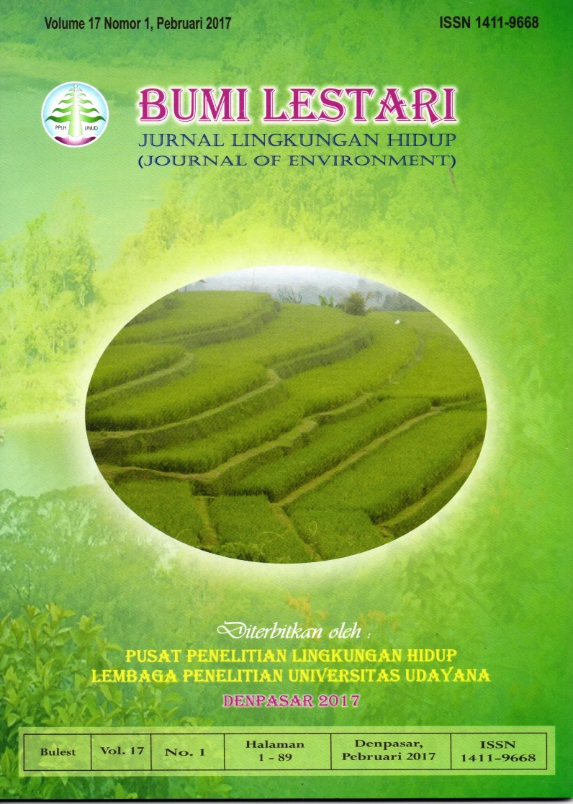CLIMATE CHANGE PERCEPTION AMONG STAKEHOLDERS AND CLIMATE CHANGE ADAPTATION DESCRIPTION BASED ON LOCAL WISDOM IN GUNUNGKIDUL, INDONESIA
Abstract
Adaptation is a process of adjustment with the climate change by reducing its risk level to human. Meanwhile, the stakeholder can be defined as people who have an interest in climate change, either the policy maker or the population. This research is aimed atidentifying the current climate change’s situation in Gunungkidul, Indonesia;assessing stakeholder perception regarding climate change, and capturing climate change adaptation in local level. The research was conducted qualitatively through FGD and workshop to take account of perception among stakeholders.Climate change’s situation in Gunungkidul was identified by the extremely fluctuating precipitationlevel in the last 10 years.On the basis ofrespondent’s testimony, we come to know that season can no longer bepredicted by their local wisdom calendar. The majority of them defined climate change as changing of season from dry to rainy season and vice versa. There were several forms of adaptation strategy taken by diverse people in Gunungkidul, considering their occupation. A farmer chose the crop that survives in dry condition (need less of water). On the other hand, an entrepreneur adaptated to climate change bycreating an everlasting business that remained unaffectedby seasonality or climate change. Meanwhile, a breeder acclimtized themselvesby preserving fodder like silage for their livestock. Lastly, government employees stated that they were left untouched by climate change. From this research, we come to a pointthat Gunungkidul is experiencing climate change’s impact in many sectors. Despite the fact that Gunungkidul citizens have a relatively low level of understanding about climate change, it can be seen that they have an adaptation strategy to climate change based on their local wisdom. Thus, in order to strengthen their adaptation capacity, we definitely require the support from the policy maker and local authority.
Downloads
Authors who publish with this journal agree to the following terms:
- All articles published by Bumi Lestari Journal of Environment and Environmental Reseach Center Udayana University are made available under an open access license worldwide immediately. This means everyone has free and unlimited access to the full-text of all articles published in Bumi Lestari Journal of Environment, and everyone is free to re-use the published material given proper accreditation/citation of the original publication. Open access publication is supported by authors' institutes or research funding agency by payment of a comparatively article processing charge for accepted articles (See Author Fees). Bumi Lestari Journal of Environment and Environmental Reseach Center Udayana University publish articles under the Creative Commons Attribution License.
- Authors are able to enter into separate, additional contractual arrangements for the non-exclusive distribution of the journal's published version of the work (e.g., post it to an institutional repository or publish it in a book), with an acknowledgement of its initial publication in this journal.
- Authors are permitted and encouraged to post their work online (e.g., in institutional repositories or on their website) prior to and during the submission process, as it can lead to productive exchanges, as well as earlier and greater citation of published work (See The Effect of Open Access).





